

Dr. Gomathy Radhakrishna Iyer joined SCS Engineers in April 2019 as a Staff Professional working out of our Reston, Virginia office. She recently had the honor of delivering a presentation at the Global Waste Management Symposium in February. Learn more about Gomathy and her work as an engineer at SCS:
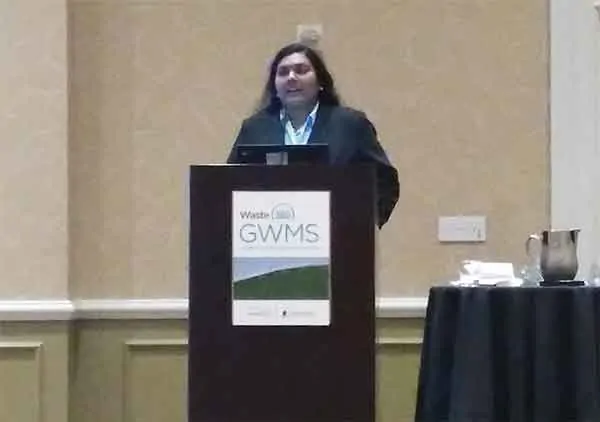
Tell us about your responsibilities as a Staff Engineer at SCS Engineers.
What attracted you to work at SCS?
What is your favorite part of working at SCS?
What do you feel is your greatest achievement/contribution at SCS?
What was your greatest challenge at SCS, and how did you overcome that?
What advice do you have for students who have recently graduated and are entering the engineering field?
You recently made a presentation at the Global Waste Management Symposium. Tell me more about it, and how did it go?
What are your hobbies outside of SCS?
Christina Finizio, a recent graduate from the University of Florida now holds a Bachelor of Science in Environmental Engineering. Her journey with SCS began last summer when she joined the Boca Raton team as an Intern. Christina did not always know she would become an engineer, she thought she would study International Business just like her sister, but that quickly changed.
In high school, she attended a Hackathon event that took place in San Francisco, and that is when her interest in engineering began. In this event, she got a glimpse of computer science and other areas; her instincts kept drawing her to engineering. She looked at her options, and many did not seem appealing to her until she looked into environmental engineering. It ultimately made sense to go that route; she always had an interest in the environment and was the President of the Environmental Club in high school.
While in college, she participated in an exchange program and flew out to Madrid for the spring semester. Her experience was unforgettable. During this time, she made friends from all over Europe and the world, improved her Spanish and explored the world of tapas. While there, she took care of business and had an internship with Sacyr’s (Valoriza Servicios Medioambientales), a construction firm, where she joined their Environmental Engineering group. Her internship focused on environmental and solid waste. This was the first time she was exposed to the solid waste industry, and where her interest grew.
After completing her exchange and internship program, she arrived home with a clear idea and knowledge of what she wanted to do next. She did her research and found a well-known professor who teaches and researches in solid waste at her university. She took his classes and studied with his group so she could become more knowledgeable.
Christina is was involved on campus and joined many student organizations. At one of the Society of Women Engineers’ (SWE) event, she met SCS’s Director of Talent Acquisition, Jennifer McCafferty. Christina was interested in SCS’s work and kept in touch with Jennifer. The following summer she applied to SCS’s internship program and was offered an internship in the Boca Raton, Florida office. She enjoyed the experience because it focused on solid waste management her primary area of interest.
Shortly after graduating, Christina joined the SCS team as an Associate Professional at the Tampa, Florida office. She loves the culture, and enjoys working with her team; they are exceptionally friendly and are always willing to lend a hand. She feels her success is in part, due to her team’s focus on their clients’ needs and believes this focus and the team’s communication style is valuable to clients, her team and herself.
Every day her work is different; she can be out in the field one day and in the office the other. She works on a variety of reports such as annual air monitoring and greenhouse gas reports; performs construction oversite for gas systems and system expansions. Her internship and new responsibilities give her a deeper understanding of the solid waste business, and how landfill gas can become a renewable energy resource rather than an environmental impact.
One of her biggest challenges is being able to imagine or see what is going on in the landfill. Landfills are complex requiring environmental monitoring and multiple systems for continuous protection; no doubt that Christina will continue to learn from the best in the business and continue to excel as an Associate Profesional.
Her advice to new interns is to always ask for help when you need it and offer support to those around you. You will be surprised how much you will learn from different areas and how friendly and willing to mentor everyone is. She feels this mantra was what prepared her for her current position.
Fun facts you should know about Christina; that she loves to salsa dance, cook, and travel. She is the first one in her immediate family to hold a degree in engineering and the STEM field. Christina is a valuable member of the SCS Tampa office team and the firm.
SCS Engineers is fortunate to include Christina and our many other Young Professionals at SCS on our teams.
Sustainable environmental programs require multi-disciplinary professionals who have highly technical engineering skills and can develop solutions in coordination with state and local entities, private businesses, and the public.
SCS Engineers announces several strategic management enhancements following its Board of Directors meeting in November. The firm promoted several individuals and hired new professionals to increase support for its landfill, waste management, and clean energy clients in states where recycling goals and the reduction of greenhouse gases are advancing at a rapid pace.
SCS Engineers is an employee-owned corporation, with a Board of Directors that sets policies, appoints officers and committees, and otherwise serves the employee-shareholders by governing the corporation. SCS Engineers includes three specialty business practices: SCS Field Services, SCS Energy, and SCS Tracer.

Promoted to Vice President were Myles Clewner (Florida), Jim Ritchie, Srividhya Viswanathan, Art Jones, and Sol Sim (California); and Tom Lock (Pennsylvania).
SCS also welcomes new Project Director, Daniel Dietch, to its Miami, Florida, office. Mr. Dietch comes to the firm with more than 20 years of academic and professional experience in solid waste management. His experience includes master planning, landfill closure plans, operations and technology reporting, rate models and cost-benefit analyses, data management, and procurement. His expertise will help support achieving state and local sustainable recycling and waste management goals. Mr. Dietch is also the Mayor of Surfside, Florida, and brings the unique big-picture perspective of a public servant.
“These colleagues are a key part of our success, and we are proud to announce their promotions,” said President and CEO Jim Walsh. “Our clients and SCS are thriving as new professionals join with our best and brightest employee-owners.”
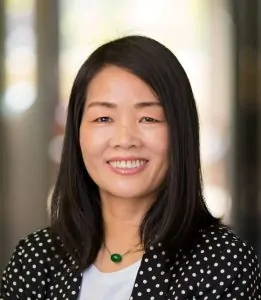
Fangmei Zhang, P.E., PhD, is a Senior Project Manager in the Miami Office of the Southeast Region. She has 13 years of experience in the environmental and civil engineering field, with 7 years at SCS Engineers. Fangmei received her Bachelor of Science degree from Southeast University (China), her Master from Tongji University (China), and PhD from Case Western Reserve University (Ohio), all in Environmental Engineering.
At SCS, Fangmei manages assessment, remediation, and redevelopment projects for some of our largest clients. Fangmei is also a founding member of the SCS Technical Advisory Group, a newly created group of staff who serve as technical advisors on environmental projects. She also leads the region’s Environmental Services Technical Committee. The intent of this committee, which is comprised of a group of environmental leaders through the region, is to foster a forum for the identification, evaluation, and implementation of new and emerging technologies to enhance technical excellence and to facilitate SCS’s growth as a leader in the environmental engineering and consulting field. Fangmei is also a founding member of the Southeast Region’s SCS Women, a group recently created to provide mentorship and support to empower women to achieve career and personal success.
Fangmei was born in a remote village in east-central China. Growing up in the countryside, Fangmei has unforgettable memories of being close to nature. As a child, she learned how to plant rice in rice paddies, to work with cotton and hem fields, and to plant vegetables. She picked wild vegetables to feed pigs and collected chicken droppings to use as organic fertilizer using tools hand-made from bamboo sticks and river mussel shells. The country life she enjoyed as a child forged her love of nature.
Fangmei also loved going to school. At the time, she was the only girl who attended the village school, and she walked several miles each day to earn her education. After the fifth grade, she continued her education in Jingzhou, Hubei province, where schools were more competitive and provided better prospects for going to college. Eventually, she completed her BS and MS in China. In 2001, she came to the United States for further study, partly because environmental engineering in China did not yet address soil or groundwater contamination. She received her PhD in 2006 with research focusing on bioremediation.
Fangmei chose to come to the U.S. to study because she also loves to travel and see the world. She enjoys traveling to new places and learning about different cultures. She also loves visiting botanical gardens and farms. During her trip to Laos two years ago, she saw poor villages and little girls running around without shoes in the countryside, and it reminded her of her own childhood. Influenced by a friend and her experiences, Fangmei has provided financial support and assisted in other fundraising to help build schools in the villages in Laos and Cambodia, with the hope of providing these children with opportunities for a better future.
To learn more about a career with SCS Engineers, please visit the SCS Careers page.
SCS Engineers presents a behind-the-scenes look at the special people who make us thrive and the roles they play within the organization.
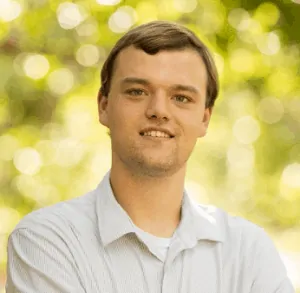
As Ryan Duckett was growing up in the mountains of western North Carolina, he knew he wanted a career in a field that was related to nature. That, combined with the fact that he enjoyed math and science in high school, led Ryan to majoring in Environmental Engineering at North Carolina State University. As an engineering major, Ryan enjoyed an internship at EREF (Environmental Research & Education Foundation) in their research program. The connections he made at EREF led to his first job out of college in August 2014 as an Associate Professional at the Richmond office of SCS Engineers.
Now well into his third year at SCS, Ryan is a Project Professional while simultaneously obtaining his MBA at VCU (Virginia Commonwealth University) with the help of SCS’s tuition reimbursement program. At SCS, Ryan started to fill role in the Sustainable Materials Management (SMM) division of the Richmond office. His average day consists of business development in a growing sector of work. Ryan comments, “There is a lot of opportunity in the SMM realm right now. I do a lot of work for municipalities for their recycling systems, collection systems, and financial systems.”
Ryan’s position at SCS is especially unique as he enjoys a mix engineering work and business development. His engineering work covers his design work at collection centers, landfills, and landfill gas systems. His business development work covers financial analyses he completes for SCS’ clients. When asked to describe that work, Ryan said “I basically compile background info and background financial info and use that information to project future cash flows for a time range like 10 to 20 years. A lot of factors can influence those projects that have to do with different logistical measures. For example, a transfer systems liability depends on how far you are transferring waste. This goes hand in hand with my MBA studies. The financial and accounting skills that I’m learning at school definitely contribute to the practice. I think engineering surprisingly has a nice synergy with finance because with engineering you understand the operations side and being able to combine that with the way financial analysts assess problems is really valuable.”
For future SCSers, Ryan has some words of wisdom: “at SCS, you really have the ability to make major positive change in the sense that we are a major force in the implementation of more sustainable practices in the industry. Before joining I didn’t really realize the full role of the consultant in the process. Working with a wide range of clients over a wide range of disciplines allows for a perspective that is harder to obtain in an in-house or governmental setting. Also, don’t be afraid to reach out. As a national company, SCS has a lot of resources for young professionals. There is a lot of expertise to draw from.”
Ryan sees no end to his future at SCS Engineers. He enjoys the fact that as young professional, he has the opportunity to develop of lot of subject area protocols and resources within SMM. He has room to create his own way and Ryan believes it is important to create your own way with all the dynamic changes in the industry right now. Ryan states “I really like the entrepreneurial spirit of the company. It allows for a lot innovation and creativity especially in the SMM practice because we’re still defining it. I really like the employee ownership aspect, I think it goes hand in hand with the entrepreneurial spirit. The ESOP has done a lot of good things for the company and culture. It’s cool to have the umbrella of resources of one of the most qualified solid waste firms in the country. I would like to take SCS to whatever is society’s next step in solid waste, my contribution is a fresh perspective and I’m really looking forward to the future.”
To learn more about a career at SCS Engineers, please visit our SCS Careers page.
SCS Engineers presents a behind-the-scenes look at the special people who make us thrive and the roles they play within the organization.
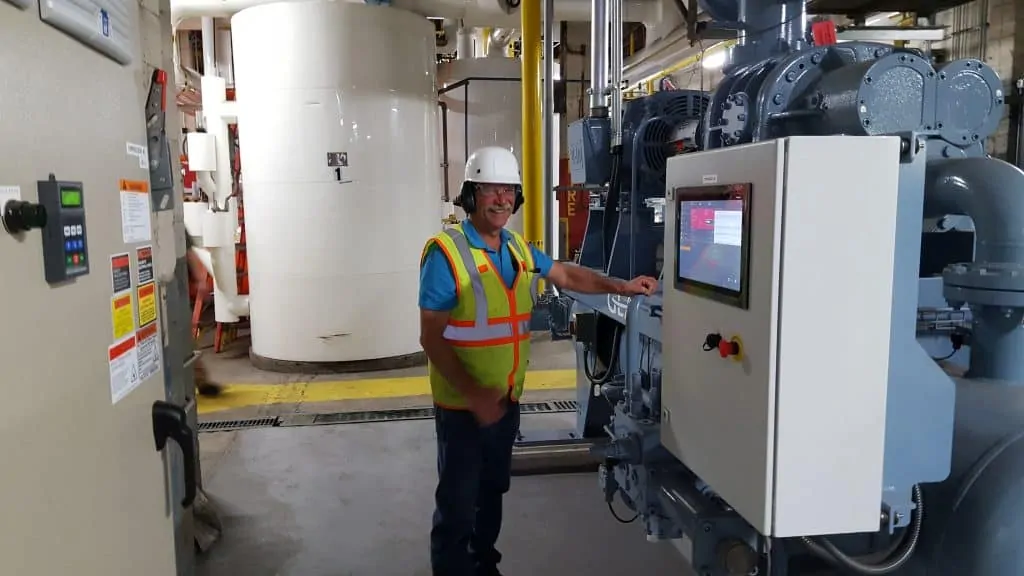
Gene Dumas joined SCS Engineers in 2015 as a Project Manager for the Risk Management
group with a thirty-year background in the ammonia refrigeration business. When asked what attracted Gene to SCS, he said “What SCS Tracer did is what I’ve always wanted to do. SCS Tracer has the passion for making the ammonia industry safer. SCS goes out of the way for customer service. Ammonia refrigeration is a very dangerous industry and what separates SCS from other companies is the commitment to safety.” For years, Gene has known Lee Pyle, Vice President and Project Director for SCS Engineers, within the ammonia refrigeration field and when he met her team at SCS, “I was blown away with their intelligence and passion. They are super smart and a good group. Lee put together a hell of a team.” Considering all those factors, it was an easy decision to join SCS Engineers.
Outside of SCS, Gene has been a member of the Refrigerating Engineers & Technicians Association (RETA) since 2004. RETA is a refrigeration organization with a mission statement to enhance the professional development of refrigerating engineers and technicians. Gene states “it’s basically the education sector of industrial ammonia refrigeration. We train, develop and certify the people who are actually working in the facilities operating systems.”
Eleven years after becoming a member, Gene was sworn in as a national president on October 1st, 2015 and was president for the 2016 year. Presently, he is a chairman for RETA and on his last year on the RETA National Board of Directors.
At SCS, Gene considers one of his greatest achievements is mentoring the newer generation to understand their industry better. “I think my mission in life is to mentor. Mentoring the younger people that are coming in, putting them under my wing, it’s very rewarding, intrinsically rewarding.” Gene comments, “I want to pass my knowledge to the next generation because we’re losing our skilled craftsman. It’s very critical that we train. A trained operator is #1: safe and we need more of them.”
For current and future SCS employees, Gene offers this piece of advice: “I came here because I wanted new challenges and wanted something new every day. The minute you 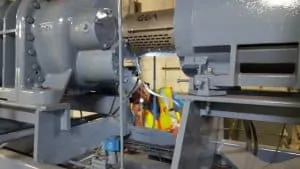
SCS Engineers is currently looking for a Senior Professional to add to our Risk Management Ammonia Refrigeration team. For more details visit the SCS Engineers Careers Page or click here to apply directly.
SCS Engineers presents a behind-the-scenes look at the special people who make us thrive and the roles they play within the organization.
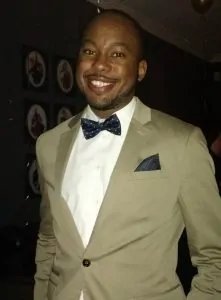
Roger Hogg has been with SCS Engineers since 2010 as an engineer working on Solid Waste projects. However, his career in the Solid Waste industry actually began when he was still in college. During senior year at the University of Florida as a Biological Engineering major, Roger obtained an internship with a local municipality in their Solid Waste department. At the time, he still didn’t know what he wanted to do with his career but he found the projects that he worked on to be fascinating. The projects ranged from agricultural waste management to landfill gas energy and Roger knew what he wanted to do with his career.
Roger started in the SCS Tampa office and now works at the SCS Atlanta office where his project work ranges from landfill gas field system design to air compliance reports. When asked what his favorite part of working at SCS is, Roger replies:
“The flexibility and opportunity to work with people in the other SCS offices, the culture and the quality of people. SCS values the culture of inclusion. SCS is truly a team, we definitely try to help each other out. We cross the lines of expertise to deliver a good product to the client. We try to help each other succeed. ”
Not to say that Roger did not face some challenges: he remembers that the transition from being a staff engineer to a senior role and handling the pace of the consulting took some time to adjust. He remembers that challenge and he takes his role as a mentor to the newer generation at SCS very seriously. With new hires, he makes himself available to mentor them in the technical aspects of the job we well as to make sure they are taking advantage of the family culture at SCS.
He believes the best advice he can give to future SCSers is:
“Be a sponge, absorb as much knowledge as you can. Keep your eyes wide open and always try to improve yourself.”
He also advises to focus on producing a really good product and satisfy the needs of your clients as he attributes that greatly to his own success at SCS.
If you would like to join a team oriented, client success driven company like SCS, please visit the SCS Careers Page for all of our available job openings.
An SCS Engineers Technical Bulletin will be released early in the week.
The U.S. Environmental Protection Agency issued limits on methane emissions from oil and gas wells that are more stringent than those it proposed last year. The final regulations released on Thursday, May 12, 2016, will add hundreds of millions in additional costs per year; at least 25 percent higher than the preliminary version published in August 2015.
EPA Administrator Gina McCarthy told reporters on a conference call that the mandates, applying immediately to new and modified wells, are a “critical first step in tackling methane emissions from existing oil and gas sources.”
Under the rule, companies must upgrade pumps and compressors while expanding the use of “green completion” technology meant to capture the surge of gas that can spring out of newly fracked wells. Such green completion techniques have been required for new and modified natural gas wells since 2015, but Thursday’s rule would broaden the requirement to oil wells too.
Take me to the EPA summaries. Click on the information sheets listed below:
Penton’s Waste360 Unveils the Next Generation of Leaders in the Waste and Recycling Space Award
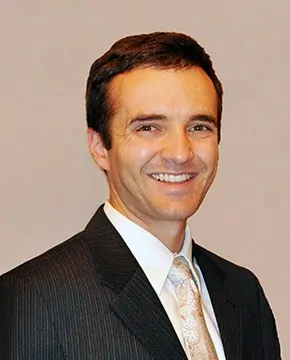
The Waste360 “40 Under 40” awards program recognizes inspiring and innovative professionals under the age of 40 whose work in the waste, recycling, and organics industry has made a significant contribution to the industry. Dave Hostetter focuses on designing landfill gas systems and landfill gas flare systems. Although still considered a young professional himself, he serves as a mentor to other engineers, providing guidance with hands-on design as well as professional guidance.
Dave is a LEED® Accredited Professional (LEED AP) and a Certified Energy Manager (CEM). He brings to SCS Engineers an abundance of expertise and fresh ideas. Dave has a keen eye for troubleshooting and diagnosing control system issues. He serves SCS clients wholeheartedly and goes out of his way to provide assistance as well as the expertise needed to make their day-to-day operations run as smoothly as possible. Dave has participated in a multitude of landfill gas and leachate system designs, including designs for blower and flare stations, wellfields, gas conveyance piping, leachate pumping systems, and groundwater extraction systems. His vast and varying experience, honest and hard-working approach to projects, and his positive attitude make him a respected resource within the firm.
Dave lives the SCS mission, and clients trust him for his honest and comprehensive approach to their challenges. Dave takes ownership of his work and puts in the time and effort to deliver excellent results and maintain a great relationship with his clients. “Dave Hostetter sets the example of how an honorable, dynamic, and experienced engineer should act at SCS,” said Paul Mandeville, Senior Vice President and Director of SCS’s offices on the east coast. “Dave serves as a model of what young professionals and students should strive to become in their professional and personal careers; we are very proud of him.”
Please join SCS in congratulating Dave Hostetter on his recent recognition by Waste360.
Infrastructure Week (May 16–23) is a national week of events, media coverage, education, and advocacy efforts to bring the state of the nation’s infrastructure to the attention of all Americans. Forester Media, the publisher of MSW Management magazine, is an Infrastructure Week affiliate. John Trotti, MSW Managing Editor recently surveyed Jim Walsh, P.E., BCEE, President and CEO of SCS Engineers and long-time friend of the magazine on the topic. Jim is first out of the blocks to answer the four questions John asked of respondents from MSW and Forester’s other publications, Business Energy, Erosion Control, Grading & Excavation Contractor, Stormwater, and Water Efficiency.
MSW Management (MSW): Which infrastructure projects should be given priority? Roads and bridges? Dams and levees? Water supply? Electrical grid? Waste management?
James Walsh (JW): Typically public safety, cost, and benefit determine the priority for infrastructure projects, and different political jurisdictions have different priorities. Where highways and bridges are new but waste management facilities are old, the priority might be waste management facilities, and vice-versa. Some types of infrastructure are more amenable to private sector solutions, which can allow the government to focus on other types of infrastructure. The trend in waste management, for example, has been to rely on the private sector in the last decade
Each segment faces difficult challenges; the most significant is funding. Waste management does not necessarily have priority over other projects, but has progressed by regionally identifying the infrastructure necessary. Thus, each region avoids the pitfalls of competing for funding with other regions and other projects.
SCS Engineers focuses on waste management, but there are opportunities to interact with other segments in sustainable ways. For instance, we have energy clients who supply coal ash to specialty cement companies who use it to make “green” cements that last longer in applications such as road construction. We design and construct facilities that take the byproduct gases from the decomposition in landfills to generate electricity reducing their dependence on fossil fuels, or directly use the gas for energy to power wastewater plants simultaneously cleaning and conserving water. We find ways to safely redevelop contaminated property supported by existing infrastructure, thus reducing the need to build new infrastructure.
In short, we work toward helping clients find sustainable solutions to infrastructure projects.
MSW: Is there a solution to long-term infrastructure funding?
JW: With respect to the waste management infrastructure, waste systems require significant capital investment in land, equipment, facilities, and infrastructure. While many governments have decided to rely on private industry instead of financing new governmental facilities, others have become much more sophisticated in adopting private sector approaches to financing. Pro-Forma Economic Life-Cycle Models can assist governmental entities to identify the critical variables that can impact the success of an infrastructure project. Moreover, economic models evaluate how various components of a waste system and variable assumptions integrate together into a sensible approach. Pro Forma Economic Models allow for a careful analysis of the life-cycle costs and potential revenue sources and identify factors that will influence the waste system costs and demonstrate how to adequately and equitably fund the system. These Models provide different scenarios and eliminate options that are not financially feasible or do not fit a region’s short- and long-term needs or priorities. Sensitivity analysis can be conducted to understand better the impact these variables have on capital costs, operating expense, and the overall system economics. By assessing the economic and regional benefits first, we can focus on designing and building infrastructure solutions that are safer, longer lasting, and affordable. Other benefits include adjusting the Model if there is a major change in the commodity market, such as plastics’ recycling is experiencing now and when considering the use of new technologies.
Every industry segment and every region have a different blend of socio-political conditions, geography, and monetary resources—we assess and design to their particular needs. Adopting new waste management technologies, such as anaerobic digestion or waste diversion, as part of an overall waste management program can be integrated into the Model to study how, and if, they sensibly integrate within the existing program. New technologies are typically more expensive than mature technologies such as recycling facilities and landfills, but that condition alone is not why they are considered valuable to a region. The framework considers elements key to integrating anaerobic digestion for example into a long-term program. Capital investment, a significant centralized source of high-quality organic waste, power costs and economic utility incentives, limited land suitable for composting, lack of conventional waste-to-energy facilities, or a ban on organics disposal in landfills are some of the considerations.
Many states are developing organics diversion initiatives, discouraging or banning organics from landfills; they will want to develop separate capacity for diversion within their overall program to build a sustainable plan for the long-term. In some states there is plenty of environmentally sound landfill capacity, recycling facilities have adequate capacity, and the socio-political climate has different ideals. What works in Iowa might not be suitable for California.
MSW: What kind of harm is the current state of our infrastructure doing to the economy and the community?
JW: Every four years, the American Society of Civil Engineers releases a “Report Card for America’s Infrastructure” depicting our nation’s infrastructure condition and performance. In a traditional school report card format, individual infrastructure segments are assigned letter grades—solid waste has the highest grade of B- in the most recent report published in 2013. The waste management infrastructure in the United States is robust, diverse, and significantly supports our economy and communities by providing safe and cost-effective management of the materials that we discard on a daily basis.
MSW: What can various government entities—from local to Federal—do to attract private sector support and investment?
JW: In the United States, private solid waste facilities manage 75% of the municipal wastestream. The waste management industry has many examples of public/private partnerships and significant investment by the private sector. Just look at firms like Waste Management Inc., Republic Services Inc., Waste Industries, Waste Connections, WCA Waste Corporation, Covanta, and Wheelabrator, which own and operate numerous landfills, compost facilities, waste-to-energy facilities, transfer stations, processing facilities, alternative technologies, and hauling companies. These facilities require significant private investment. Allowing private industry to participate in the management of waste management infrastructure brings needed fiscal discipline and accountability to the overall waste system infrastructure.
The private sector is attracted to markets that are predictable and that provide an appropriate return on investment. Jurisdictions with a reputation for making sudden unpredicted changes in regulations that adversely affect the return on investment will find it difficult or impossible to attract private sector support.
The waste management sector and SCS Engineers have seen our share of magic technologies that are literally too-good-to-be-true, yet somehow attract governmental support both financial and otherwise. It is fine for government agencies to provide grant support for research related to promising new technologies, but adopting an unproven technology as the sole means of waste management is inviting a public health crisis. Private sector investment is not attracted to jurisdictions that have unrealistic expectations.
About James Walsh, PE, BCEE, President and CEO of SCS Engineers
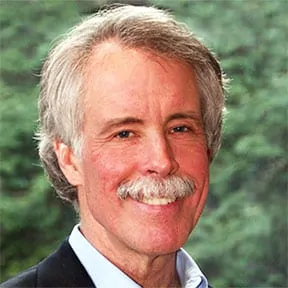
Jim has worked at the forefront of sustainable waste management for more than 40 years. He has authored numerous publications, technical support documents, presentations for the USEPA, US DOE, the Gas Research Institute while serving the Solid Waste Association of North America (SWANA), National Waste and Recycling Association (NWRA), and the Environmental Research and Education Foundation (EREF), among others.